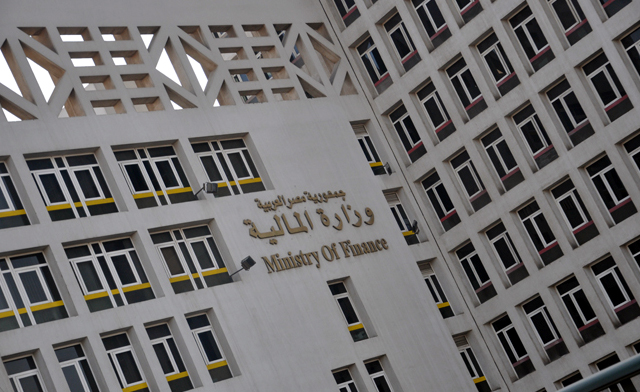
Egypt's government has proposed tax changes and reducing energy subsidies to cut a budget deficit running at about 11 percent of gross domestic product, Egyptian newspapers reported.
The austerity steps, certain to be unpopular, are part of an economic program drawn up in part to help convince the International Monetary Fund that Egypt is serious about economic reform.
An IMF team is in Cairo to negotiate a US$4.8 billion finance package for Egypt. Talks are scheduled to end on 14 November.
Economists say the IMF is unlikely to sign a loan agreement unless at least some austerity measures are in place. The deal is seen as a vital step to rebuild the confidence of foreign and local investors, and encourage more potential foreign donors.
Finance Minister Momtaz al-Saeed said Egypt could save LE35 billion ($5.7 billion) a year with planned energy subsidy reforms, the daily Al-Masry Al-Youm reported.
Egypt in September revised its budget deficit for the fiscal year ending 30 June 2012, to LE170 billion ($27.8 billion) from a previously projected LE134 billion.
New measures include the total elimination of the subsidy on 95 octane gasoline, a step that will be officially announced this week, and raising the price of natural gas piped to homes, which will come into effect next month, the minister was quoted as saying.
The natural gas price increase would be "tiny," he added.
The minister was not immediately available to comment.
Consumers now buy gas in their homes at a fraction of international prices, based on a sliding scale related to usage. Drivers pay 95-octane fuel at 2.75 pounds a liter.
The government has delayed a program to use smart cards to distribute canisters of cooking gas, or butagas, by several months to ensure the system works properly, the minister said according to the state-run daily Al-Ahram. The newspaper said the scheme would start by 30 June next year. The government had originally aimed for the program to begin by mid-October this year.
The government would not touch the price of subsidized diesel, Al-Ahram quoted Petroleum Minister Osama Kamal as saying.
The newspaper also reported, without citing a source, that the government had drafted a law to raise the sales tax on both commodities and services to 11 percent from 10 percent.
A tax on telephone services would be 15 percent, while an extra LE0.01 per minute would be levied for telephone use and a tax on text messages would be increased, Al-Ahram said.
The sales tax would rise on other goods, such as passenger cars, cigarettes and tobacco, beer and alcoholic drinks, non-alcoholic beer, carbonated mineral water, coffee beans and water-resistant cement, it said.
The sales tax on reinforced steel would be increased to 11 percent from 8 percent, Al-Ahram reported.
The draft law, which must be approved by the president or Parliament, exempted from sales tax capital goods imported from abroad for productive activities, it added.
Qatar loan tranche
Al-Ahram cited a Finance Ministry official as saying the budget deficit would reach LE182 billion this year but could surge to LE234 billion if the economy remained weak. Officials have blamed the higher deficit on energy subsidy reform delays.
The Cabinet also approved a draft law to draw informal businesses into the official economy to lift the tax take, the paper cited the minister as saying. It said workers in unregistered establishments who registered themselves would be exempt from paying back taxes.
The Finance Ministry would also extend to March from December a deadline to pay back taxes and still qualify for a 15 percent discount. The penalty for non-payment would be set at up to five years in jail.
Cairo said on Sunday it had received a third tranche of $500 million from Qatar, part of a $2 billion loan secured by Egypt in August to help stave off a financial crisis and which Qatar is depositing at Egypt's central bank.
The state news agency MENA quoted Egypt's Finance Minister Saeed as saying the third tranche of the loan arrived on 30 October and that the last tranche was expected to arrive "soon" but did not give an exact date.


